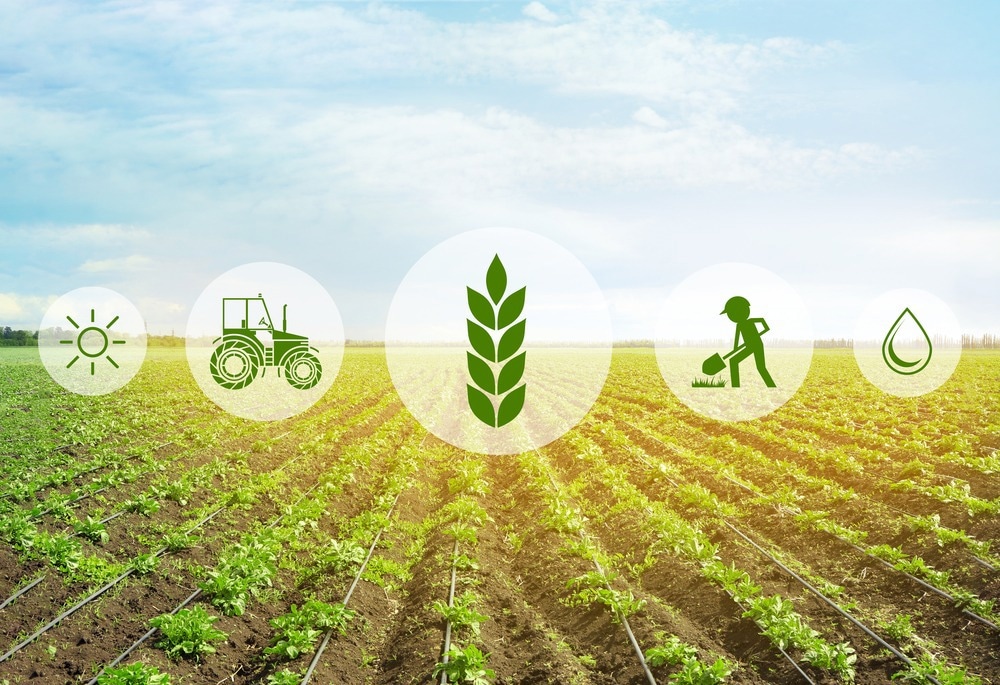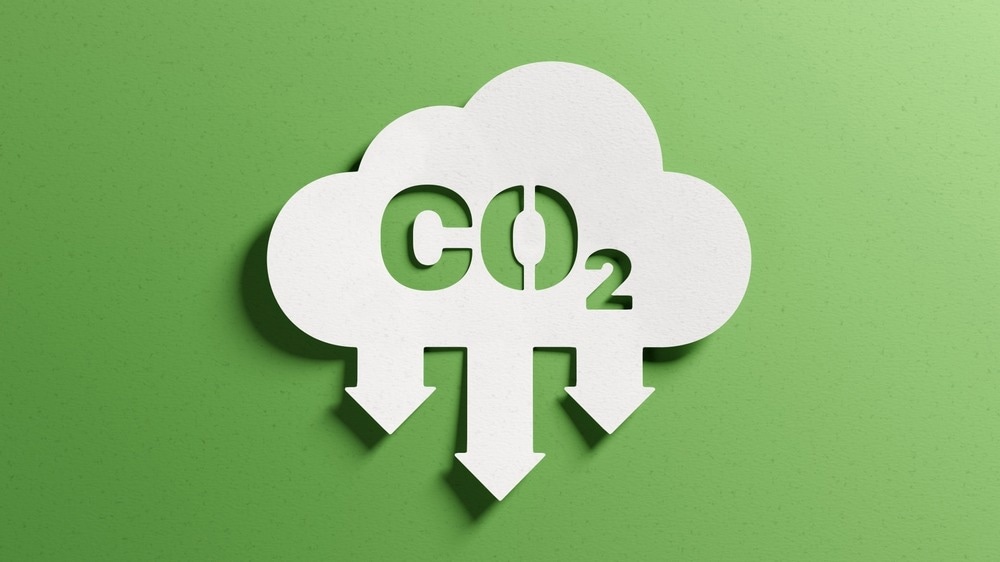The world’s food system releases excessive emissions into the atmosphere, contributing to climate change, which, in turn, has a detrimental impact on food production. To establish food security for future generations as well as address climate change, global food production needs a radical transformation - experts believe that digitization will play an important role in this.

Image Credit: Africa Studio/Shutterstock.com
Threats to the global food system
The world’s food system currently faces a myriad of challenges to overcome, such as threats to biodiversity, the increasing demand for food caused by the growing population, the changing demand for food items due to the prevalence of diet-related diseases that have arisen from unbalanced diets, the high levels of greenhouse gases the sector contributes - leading to global warming, and socially problematic complex supply chains.
Recent world events have profoundly affected the global food system, such as the Covid-19 pandemic and the war in Ukraine, highlighting how frail the system’s safety net is.
As well as future-proofing the global food system from other potentially destabilizing events, the food sector must decarbonize its processes to become sustainable. Currently, agriculture contributes around one-fifth of total global greenhouse gases. Additionally, the relationship between food and climate change is bidirectional, meaning that agricultural processes contribute to climate change, and, in turn, climate change negatively impacts food production. Changing weather patterns, more frequent extreme weather events, and pollution profoundly affect crop production. As the world’s population continues to expand globally, double the amount of food will need to be produced by the year 2050. With this urgent need to produce more and more food, the current carbon-emitting processes of the agricultural industry will only produce more emissions, worsen climate change, and thus cause more challenges for food production.
Therefore, the food system requires a total transformation to establish future food security and address climate change. Experts believe digitization will be a key strategy for transforming the agricultural economy, helping to establish more sustainable processes that improve farming processes and reduce emissions.
Digitization as a driver of decarbonization
The concept of digitization is neither good nor bad for the environment on its own. How digitization impacts climate change depends on how it is implemented. While digitization already accounts for an estimated 4% of global greenhouse gas emissions, and some predict that in some years, it may contribute more carbon emissions than transportation, others see the potential digitization has to build systems that are more sustainable and contribute fewer greenhouse gas emissions.
Digitization is key for collecting new information, and information is vital to the agricultural industry. It helps scientists and farmers understand how to grow high-quality, nutritious, abundant crop yields without relying on processes that damage the environment. Additionally, digitization can promote, which is vital to tracking the ecological footprint of products and enhancing accountability.

Image Credit: NicoElNino/Shutterstock.com
How can digital solutions decarbonize food production?
Digital solutions can protect the environment in many ways. Digitization is already being used to promote clean air, intact soil and preserve the Earth’s biodiversity. The implementation of digital solutions in agriculture has led to the advent of smart farming, where farms are managed with advanced technology, such as big data, cloud computing, sensor technology, and artificial intelligence, incorporated into the Internet of Things (IoT). This technology allows for functions such as automation, analytics, tracking, monitoring, and more.
For example, smart farms use sensor technology to collect fine-grain data on environmental factors important to crop growth, including moisture, light, humidity, temperature, rainfall, pH, and more. This data can be leveraged to reduce fertilizer and unnecessary vehicle use, and it can optimize energy usage in vertical farming.
Additionally, technologies such as GPS allow for precision farming techniques such as the optimized spacing of crops between wheel pathing lanes that are permanently positioned. Such systems can reduce fuel consumption by as much as 70% as well as reduce run-over of the soil surface by 60%.
Data analytics tools have also become fundamental to smart farming. This technology allows for the collection of vast quantities of in-depth data that enables experts to gain a deeper understanding of crucial elements that impact both farming and climate change and the relationship between the two, such as crop yields, weather data, soil mapping, and tracking various factors of climate change.
Finally, satellites and drones are now being integrated into agricultural processes to gather continuous data on the farm. This information is then analyzed to allow for automated, remote monitoring. This reduces the need for human surveillance, which usually requires vehicles powered by fossil fuels. Thus, the system reduces the farm’s carbon footprint.
For digitization to succeed in helping food production address climate change, as well as implementing digitization across the globe, it is important that the institutional, societal, and political conditions are curated to facilitate this transformation.
Sources:
- April 2019. Future of Food: Harnessing Digital Technologies to Improve Food System Outcomes [online]. The World Bank. Available from: www.worldbank.org/.../future-of-food-harnessing-digital-technologies-to-improve-food-system-outcomes (Last accessed November 2022)
- Benjamin Teufel and Carmen Maria Sprus. October 2020. How digitalization acts as a driver of decarbonization [online]. EY. Available from: https://www.ey.com/en_ch (Last accessed November 2022)
- January 2019. Digital technology can cut global emissions by 15%. Here’s how [online]. World Economic Forum. Available from: www.weforum.org/.../ (Last accessed November 2022)
- MacPherson, J., Voglhuber-Slavinsky, A., Olbrisch, M. et al. Future agricultural systems and the role of digitalization for achieving sustainability goals. A review. Agron. Sustain. Dev. 42, 70 (2022). https://doi.org/10.1007/s13593-022-00792-6
- November 2021. Global Climate Change Impact on Crops Expected Within 10 Years, NASA Study Finds [online]. NASA. Available from: climate.nasa.gov/.../ (Last accessed November 2022)
- September 2022. How digital technology can accelerate food sustainability [online]. World Economic forum. Available from: www.weforum.org/.../ (Last accessed November 2022)
Further Reading